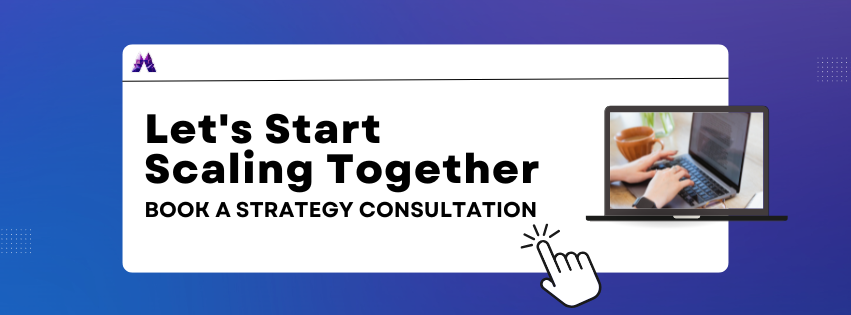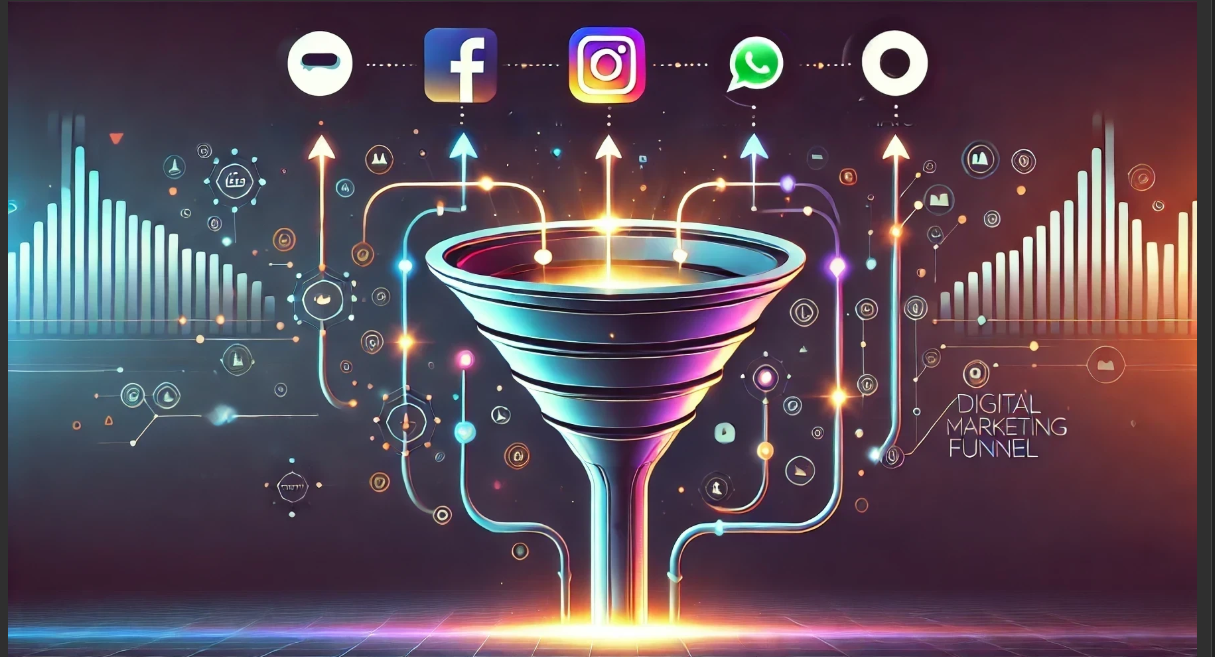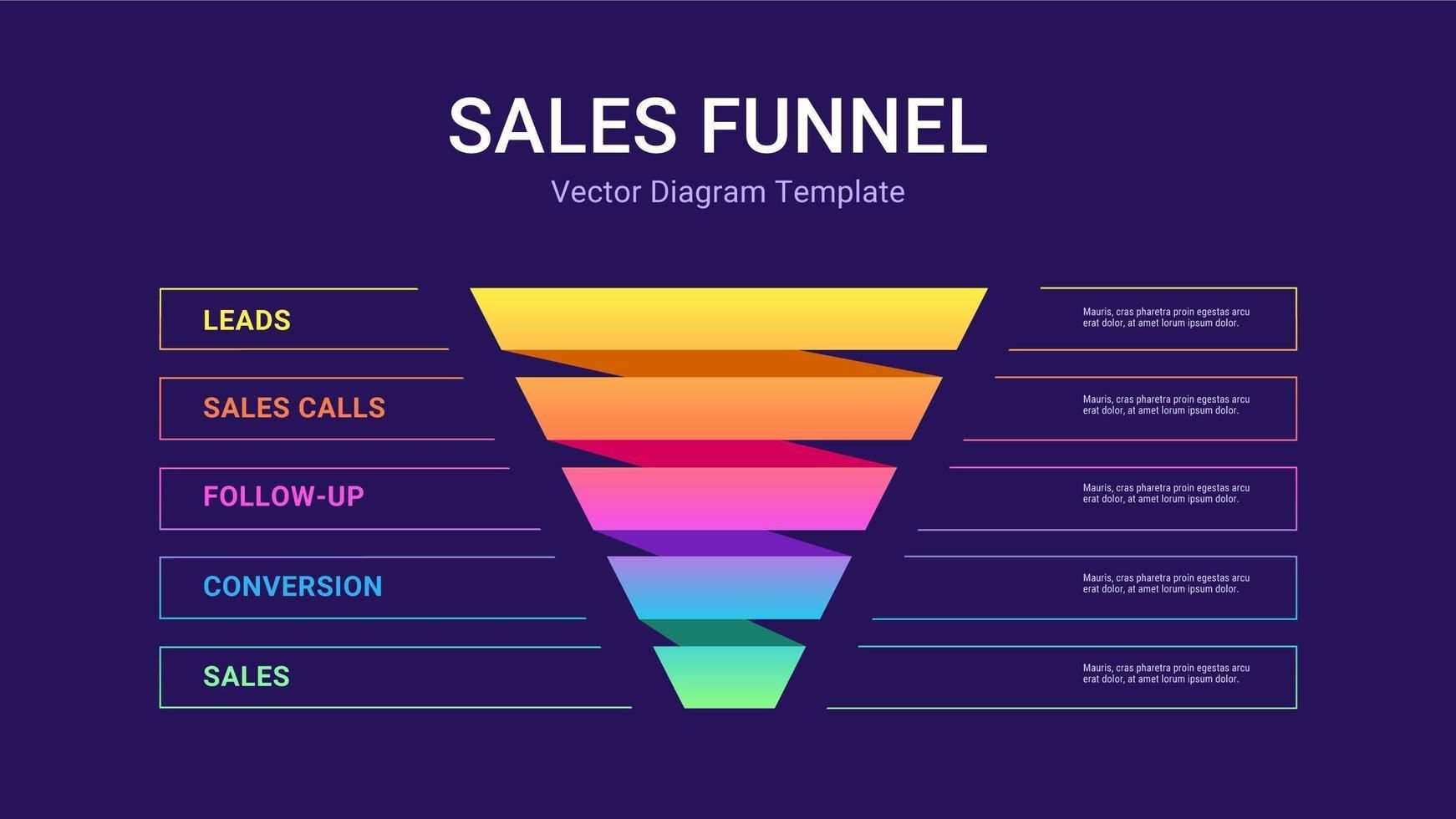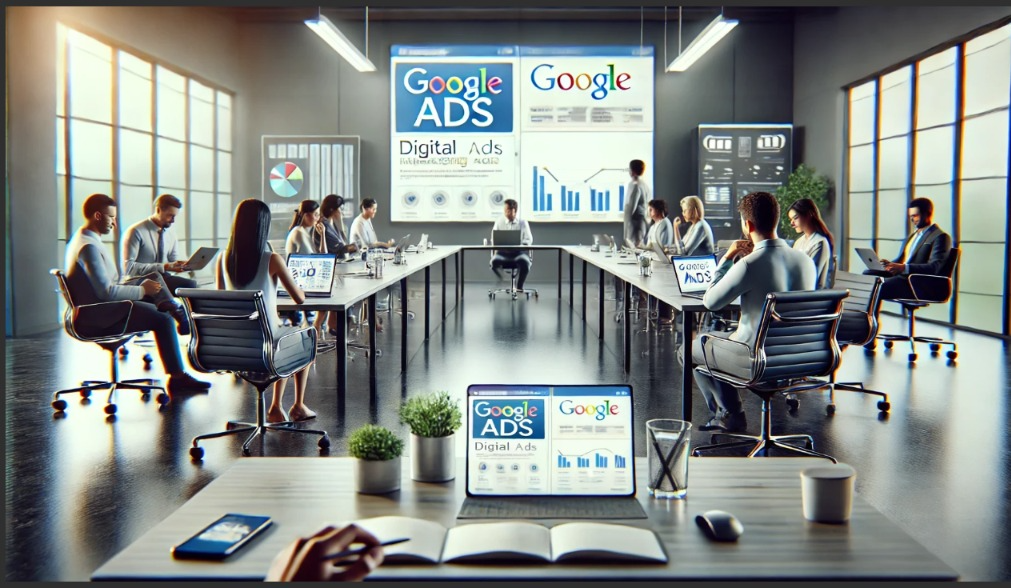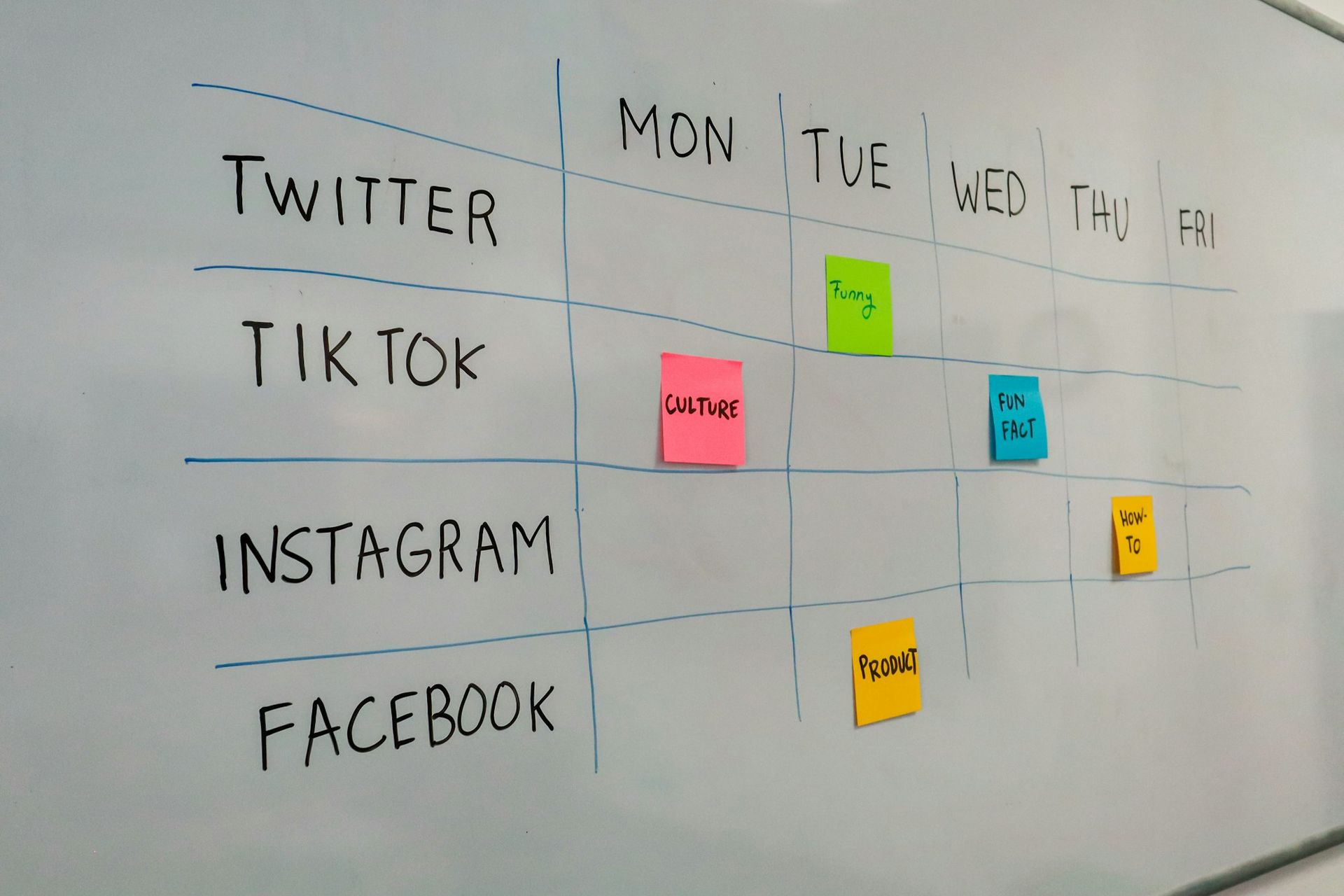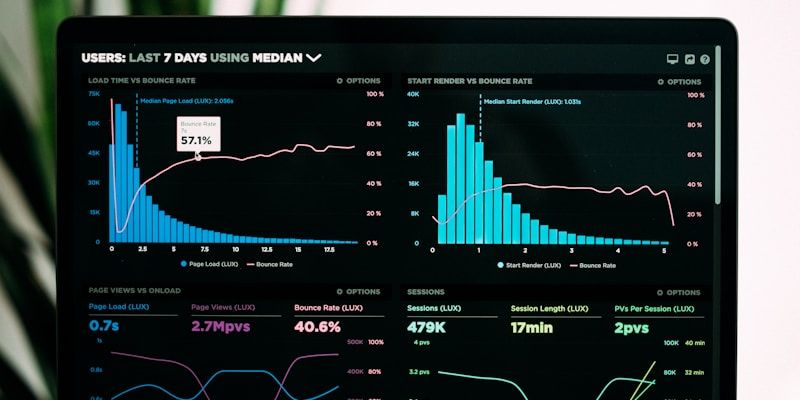Full Funnel Performance Marketing Services
Full Funnel Performance Marketing Services | What's Included?
Full funnel performance marketing services have emerged as the strategic solution for companies seeking to maximize their return on investment while creating seamless customer experiences from initial awareness through long-term loyalty.
Performance marketing has evolved far beyond simple bottom-funnel conversion tactics.
Modern performance marketing services encompass a holistic approach that aligns every touchpoint in the customer journey with measurable business outcomes. This comprehensive strategy ensures that marketing investments deliver maximum impact at every stage of the funnel.

Table of Contents
1. Introduction
- Definition of full funnel performance marketing
- Why businesses need comprehensive performance marketing services
- Evolution of marketing from siloed channels to integrated approaches
2. Understanding the Full Marketing Funnel
- Top of funnel (TOFU) - Awareness stage
- Middle of funnel (MOFU) - Consideration stage
- Bottom of funnel (BOFU) - Conversion stage
- Post-purchase - Retention and advocacy
3. Core Components of Full Funnel Performance Marketing Services
- Data analytics and attribution modeling
- Multi-channel campaign management
- Creative strategy and development
- Conversion rate optimization
- Customer lifecycle marketing
4. Performance Marketing Service Packages Explained
- Paid advertising management (Meta, Google, LinkedIn)
- SEO and content marketing
- Email marketing automation
- Social media advertising
- Marketing technology stack management
5. Benefits of Integrated Performance Marketing Approach
- Improved ROI across all channels
- Better customer experience and journey mapping
- Enhanced data insights and decision making
- Scalable growth strategies
6. How to Choose the Right Performance Marketing Partner
- Key qualifications to look for
- Questions to ask potential agencies
- Red flags to avoid
7. Measuring Success in Full Funnel Marketing
- Key performance indicators (KPIs) by funnel stage
- Attribution models and tracking
- Reporting and optimization frameworks
What is Full Funnel Performance Marketing
Full funnel performance marketing represents a data-driven approach that optimizes every stage of the customer journey. Unlike traditional marketing methods that focus on individual channels or tactics, full funnel performance marketing offerings integrate multiple touchpoints to create a cohesive strategy that drives both immediate conversions and long-term customer value.
According to HubSpot's 2025 State of Marketing Report, 82% of marketers believe having a single source of truth for marketing data is critical for organizational success. This unified approach enables businesses to understand how each marketing activity contributes to overall performance and revenue generation.
The foundation of effective full funnel marketing lies in understanding that customer acquisition costs (CAC) have increased by up to 60% over the past decade. This reality has forced marketers to think beyond last-click attribution and consider the entire customer journey when evaluating campaign performance.
Key characteristics of full funnel performance marketing include:
- Data-driven decision making across all funnel stages
- Multi-channel integration that eliminates marketing silos
- Customer-centric approach focused on user experience
- Measurable outcomes tied to business objectives
- Continuous optimization based on performance insights

The Four Stages of the Marketing Funnel
Understanding the modern marketing funnel is essential for implementing effective comprehensive performance marketing services. Each stage requires specific strategies, content types, and measurement approaches to maximize effectiveness.
Top of Funnel (TOFU) - Awareness Stage
The awareness stage focuses on introducing your brand to potential customers who may not yet recognize they have a problem your product solves. At this stage, the goal is to build brand recognition and establish authority within your industry.
Effective TOFU strategies include:
- Content marketing that addresses industry challenges and trends
- Social media presence across relevant platforms
- SEO optimization for informational and educational keywords
- Thought leadership through speaking engagements and industry publications
- Brand awareness campaigns on social media and display networks
Research from Deloitte's 2025 Digital Media Trends indicates that top-of-funnel activities are particularly effective for smaller brands looking to establish market presence and authority.
Middle of Funnel (MOFU) - Consideration Stage
During the consideration stage, prospects actively evaluate solutions to their identified problems. This phase requires educational content that demonstrates your expertise while building trust and credibility.
Key MOFU tactics include:
- Lead magnets such as whitepapers, webinars, and case studies
- Email nurturing campaigns that provide value and build relationships
- Product demonstrations and free trials
- Comparison content that positions your solution favorably
- Retargeting campaigns for website visitors and content consumers
Bottom of Funnel (BOFU) - Conversion Stage
The conversion stage focuses on driving immediate sales or desired actions from prospects who are ready to make a purchasing decision. This stage typically generates the highest short-term ROI and requires careful optimization.
Effective BOFU strategies include:
- Conversion-optimized landing pages with clear value propositions
- Limited-time offers and promotional campaigns
- Sales enablement content such as pricing guides and testimonials
- Remarketing campaigns targeting cart abandoners and high-intent users
- Sales team integration for high-value prospect nurturing
Post-Purchase - Retention and Advocacy
The post-purchase stage often receives insufficient attention despite its critical importance for long-term business success. Customer retention and advocacy can significantly impact lifetime value and reduce overall acquisition costs.
Post-purchase optimization includes:
- Onboarding sequences that ensure customer success
- Loyalty programs that encourage repeat purchases
- Upselling and cross-selling campaigns based on purchase behavior
- Customer feedback systems for continuous improvement
- Referral programs that turn customers into brand advocates

Core Components of Performance Marketing Services
Modern performance marketing service packages encompass multiple disciplines that work together to create a comprehensive growth engine. Each component plays a specific role in the overall strategy while contributing to measurable business outcomes.
Data Analytics and Attribution Modeling
Effective performance marketing begins with robust data collection and analysis capabilities. Advanced attribution modeling helps businesses understand how different touchpoints contribute to conversions and revenue generation.
Key analytics components include:
- Multi-touch attribution that tracks the complete customer journey
- Real-time reporting dashboards for quick decision making
- Predictive analytics for forecasting and budget allocation
- Customer lifetime value modeling for long-term strategy development
- Cross-channel data integration for unified performance insights
According to Supermetrics' 2025 Marketing Data Report, marketers are now analyzing 100% more data per query compared to previous years, highlighting the increasing importance of comprehensive analytics in performance marketing.
Multi-Channel Campaign Management
Successful full funnel marketing requires seamless coordination across multiple advertising platforms and channels. This coordination ensures consistent messaging while optimizing budget allocation based on performance data.
Campaign management includes:
- Paid search advertising on Google and Bing
- Social media advertising across Meta, LinkedIn, TikTok, and other platforms
- Display and video advertising for brand awareness and retargeting
- Email marketing automation for lead nurturing and customer retention
- Content distribution across owned and earned media channels
Creative Strategy and Development
High-performing creative assets are essential for capturing attention and driving engagement across all funnel stages. Creative strategy must align with audience preferences and platform-specific best practices.
Creative development encompasses:
- Video content production for social media and advertising
- Static image design optimized for different platforms and objectives
- Copy and messaging that resonates with target audiences
- A/B testing frameworks for continuous creative optimization
- User-generated content integration for authenticity and social proof
Research from Social Media Examiner's 2025 Industry Report reveals that 46% of marketers identify video as their most important content type, emphasizing the critical role of visual content in modern marketing strategies.
Conversion Rate Optimization
Maximizing the value of existing traffic through systematic testing and optimization can significantly improve marketing ROI without increasing advertising spend.
CRO strategies include:
- Landing page optimization through multivariate testing
- User experience improvement based on behavioral data
- Mobile optimization for improved mobile conversion rates
- Form optimization to reduce friction in the conversion process
- Personalization based on user behavior and demographics
Customer Lifecycle Marketing
Effective performance marketing extends beyond initial acquisition to encompass the entire customer lifecycle. This approach maximizes customer lifetime value while reducing churn rates.
Lifecycle marketing includes:
- Segmentation strategies based on behavior and preferences
- Automated email sequences for different customer stages
- Loyalty program development to encourage repeat purchases
- Win-back campaigns for inactive customers
Referral system implementation for customer-driven growth

Comprehensive Performance Marketing Service Packages
When evaluating performance marketing service packages, it's important to understand the different service levels and what's included in each offering. Professional agencies typically structure their services to accommodate different business sizes and growth objectives.
Paid Advertising Management
Comprehensive paid advertising management forms the core of most performance marketing packages. This service ensures optimal budget allocation and campaign performance across multiple platforms.
Paid advertising services typically include:
- Platform setup and optimization for Google Ads, Meta Business, LinkedIn, and other channels
- Keyword research and competitive analysis for search campaigns
- Audience research and segmentation for social media advertising
- Campaign creation and management with ongoing optimization
- Budget management and bidding strategy optimization
- Performance reporting and insights with actionable recommendations
Leading agencies often manage budgets exceeding $1 million annually across multiple platforms, requiring sophisticated campaign management tools and expertise. The ability to scale campaigns efficiently while maintaining profitable returns separates professional agencies from basic service providers.
Search Engine Optimization and Content Marketing
SEO and content marketing provide the foundation for long-term organic growth and brand authority development. These services complement paid advertising efforts while building sustainable traffic sources.
SEO and content services include:
- Technical SEO audits and implementation
- Keyword strategy development aligned with business objectives
- Content creation and optimization for target keywords and user intent
- Link building campaigns to improve domain authority
- Local SEO optimization for location-based businesses
- Content performance tracking and optimization
For businesses seeking integrated marketing approaches, understanding how SEO complements paid advertising is crucial. Professional agencies often implement proven frameworks for aligning channels across the funnel to maximize overall marketing effectiveness.
Email Marketing Automation
Email marketing remains one of the highest-ROI marketing channels, with sophisticated automation enabling personalized customer experiences at scale.
Email marketing services include:
- Email platform setup and integration with CRM systems
- Segmentation strategy development based on customer behavior
- Automated sequence creation for different customer journeys
- Template design and optimization for various email types
- Deliverability optimization to ensure inbox placement
- Performance analysis and optimization for improved engagement
Social Media Advertising and Management
Social media platforms offer unique opportunities for audience engagement and conversion, requiring platform-specific strategies and creative approaches.
Social media services encompass:
- Platform-specific strategy development for each social channel
- Content calendar planning and execution
- Community management and customer service
- Influencer partnership coordination for extended reach
- Social commerce implementation for direct sales
- Crisis management and reputation monitoring
Marketing Technology Stack Management
Modern performance marketing relies heavily on technology platforms for automation, analytics, and optimization. Professional agencies help businesses navigate the complex landscape of marketing tools.
Technology management includes:
- Platform evaluation and selection based on business needs
- Integration and setup of various marketing tools
- Data flow optimization between different systems
- Training and support for internal teams
- Performance monitoring of technology investments
- Upgrade and migration management as businesses grow

Benefits of an Integrated Marketing Approach
The integration of multiple marketing channels and strategies delivers compounding benefits that exceed the sum of individual tactics. Businesses implementing full funnel marketing services typically experience significant improvements in both efficiency and effectiveness.
Improved Return on Investment
Integrated marketing approaches consistently deliver superior ROI compared to siloed campaigns. This improvement stems from better attribution, reduced waste, and optimized budget allocation across channels.
ROI improvements include:
- Reduced customer acquisition costs through improved targeting and messaging
- Higher conversion rates from aligned customer experiences
- Increased customer lifetime value through comprehensive nurturing
- Better budget efficiency with data-driven allocation decisions
- Reduced platform dependency through diversified channel mix
Data from HubSpot's marketing statistics shows that B2B brands achieve best ROI through website, blog, and SEO efforts, while B2C brands see highest returns from email marketing and paid social media content.
Enhanced Customer Experience and Journey Mapping
Full funnel marketing creates seamless customer experiences that guide prospects naturally from awareness to advocacy. This coherent approach builds trust and reduces friction throughout the buying process.
Customer experience benefits include:
- Consistent messaging across all touchpoints and channels
- Personalized content based on behavioral data and preferences
- Reduced cognitive load through clear value propositions
- Faster decision making with relevant information at each stage
- Improved customer satisfaction leading to higher retention rates
Advanced Data Insights and Decision Making
Integrated marketing strategies generate richer data sets that enable more sophisticated analysis and decision making. This enhanced visibility leads to better strategic planning and tactical execution.
Data advantages include:
- Cross-channel attribution that reveals true campaign impact
- Predictive modeling for future performance forecasting
- Customer segment insights for improved targeting
- Content performance analysis across different formats and channels
- Competitive intelligence through comprehensive market monitoring
Scalable Growth Strategies
Full funnel marketing creates sustainable growth engines that can scale efficiently as businesses expand. This scalability reduces the need for constant strategic overhauls as companies grow.
Scalability benefits include:
- Automated processes that maintain efficiency at scale
- Repeatable frameworks for entering new markets
- Team structure optimization for growing organizations
- Technology infrastructure that supports increased volume
- Performance benchmarks for measuring continued success

Choosing the Right Performance Marketing Agency
Selecting the right agency partner is crucial for implementing successful comprehensive performance marketing services. The decision requires careful evaluation of capabilities, cultural fit, and strategic alignment with business objectives.
Key Qualifications to Evaluate
Professional performance marketing agencies should demonstrate specific qualifications that indicate their ability to deliver results across the full marketing funnel.
Essential qualifications include:
- Proven track record with documented case studies and client testimonials
- Industry expertise in your specific market or business model
- Technical capabilities across multiple platforms and tools
- Team structure with specialists in different marketing disciplines
- Reporting and communication standards that match your expectations
- Certifications and partnerships with major advertising platforms
When evaluating agencies, prioritize those with experience in integrated digital marketing approaches that demonstrate understanding of how different channels work together to drive business results.
Important Questions to Ask Potential Partners
Thorough due diligence requires asking specific questions that reveal an agency's approach, capabilities, and cultural fit with your organization.
Critical questions include:
- How do you approach attribution and cross-channel measurement?
- What is your process for developing and testing creative assets?
- How do you handle budget allocation across different channels?
- What reporting and communication cadence do you recommend?
- How do you stay current with platform changes and industry trends?
- What is your approach to scaling successful campaigns?
- How do you handle client onboarding and account management?
Red Flags to Avoid
Certain warning signs indicate agencies that may not deliver the results you expect. Recognizing these red flags can save significant time and resources.
Warning signs include:
- Guarantees of specific results without understanding your business
- One-size-fits-all approaches that don't account for industry differences
- Lack of transparency in reporting or communication
- Overemphasis on vanity metrics rather than business outcomes
- Minimal team involvement in strategy development
- Unrealistic timelines for achieving significant results
- Poor references or reluctance to provide case studies

Measuring Full Funnel Marketing Success
Effective measurement of full funnel performance marketing offerings requires sophisticated attribution models and key performance indicators that align with business objectives. Success measurement must account for both immediate conversions and long-term customer value.
Key Performance Indicators by Funnel Stage
Different funnel stages require specific metrics that indicate progress toward broader business goals. Understanding these stage-specific KPIs enables better optimization and budget allocation decisions.
Top of Funnel KPIs:
- Brand awareness metrics such as reach, impressions, and brand recall
- Website traffic growth from organic and paid sources
- Content engagement rates across different formats and channels
- Social media followers and engagement metrics
- Share of voice compared to competitors
Middle of Funnel KPIs:
- Lead generation volume and quality scores
- Email subscriber growth and engagement rates
- Content downloads and resource engagement
- Webinar attendance and demo requests
- Sales qualified lead conversion rates
Bottom of Funnel KPIs:
- Conversion rates across different traffic sources
- Cost per acquisition by channel and campaign
- Return on ad spend (ROAS) for paid campaigns
- Sales cycle length and velocity improvements
- Deal size and win rate improvements
Post-Purchase KPIs:
- Customer satisfaction scores and retention rates
- Lifetime value growth and repeat purchase behavior
- Net promoter scores and referral generation
- Upsell and cross-sell success rates
- Churn rate reduction and customer health scores
Attribution Models and Tracking Implementation
Modern attribution modeling goes beyond last-click attribution to provide comprehensive insights into how different touchpoints contribute to conversions and revenue.
Advanced attribution approaches include:
- Multi-touch attribution that credits all touchpoints in the customer journey
- Data-driven attribution using machine learning for optimal credit allocation
- Cross-device tracking to understand modern customer behavior
- Offline conversion import for businesses with physical locations
- Custom attribution windows that align with typical sales cycles
Research from marketing measurement experts indicates that businesses using advanced attribution models achieve 15-20% better marketing efficiency compared to those relying on basic attribution methods.
Reporting and Optimization Frameworks
Systematic reporting and optimization processes ensure continuous improvement and alignment with evolving business objectives.
Effective frameworks include:
- Weekly performance reviews focusing on key metrics and trends
- Monthly strategic assessments evaluating overall funnel performance
- Quarterly business reviews aligning marketing with broader business goals
- Annual strategy planning incorporating lessons learned and market changes
- Real-time monitoring for quick response to performance changes
Work With Us
Meta Marketing is a full service performance marketing agency that drives growth from data-driven growth strategies that skyrocket business growth. Book your no-strings strategy call with one of our experts to get started scaling smarter today.
Frequently Asked Questions
What's the difference between performance marketing and traditional marketing?
Performance marketing focuses on measurable outcomes and data-driven optimization, while traditional marketing often emphasizes brand building and awareness without direct attribution to business results. Performance marketing requires tracking every dollar spent and optimizing based on actual conversions and revenue generation.
How long does it take to see results from full funnel performance marketing?
Results vary by funnel stage and business type. Bottom-funnel activities like conversion optimization can show improvements within weeks, while top-funnel brand building may take 3-6 months to demonstrate significant impact. Most businesses see meaningful results within 90 days of implementing comprehensive strategies.
What budget should I allocate to different funnel stages?
Budget allocation depends on business objectives and market maturity. Generally, mature businesses allocate 40-50% to bottom-funnel activities, 30-35% to middle-funnel nurturing, and 15-25% to top-funnel awareness. Newer businesses often require higher top-funnel investment for market education.
How do I know if my performance marketing agency is delivering results?
Effective agencies provide transparent reporting with clear connections between marketing activities and business outcomes. Look for improvements in customer acquisition cost, lifetime value, conversion rates, and overall revenue attribution to marketing efforts. Regular business reviews should demonstrate clear progress toward agreed-upon objectives.
Can small businesses benefit from full funnel performance marketing?
Absolutely. Small businesses often benefit more from integrated approaches because they maximize limited budgets and create efficient growth engines. Many agencies offer integrated digital marketing strategies specifically designed for growing businesses with constrained resources.
What technologies are essential for full funnel marketing?
Core technologies include customer relationship management (CRM) systems, marketing automation platforms, analytics tools, and attribution software. Advanced businesses also leverage customer data platforms (CDPs) and artificial intelligence for personalization and optimization.
How do I measure cross-channel attribution accurately?
Accurate cross-channel attribution requires unified tracking across all touchpoints, consistent UTM parameter usage, and advanced attribution modeling. Professional agencies typically use specialized tools and custom implementations to ensure comprehensive measurement across the entire customer journey.












